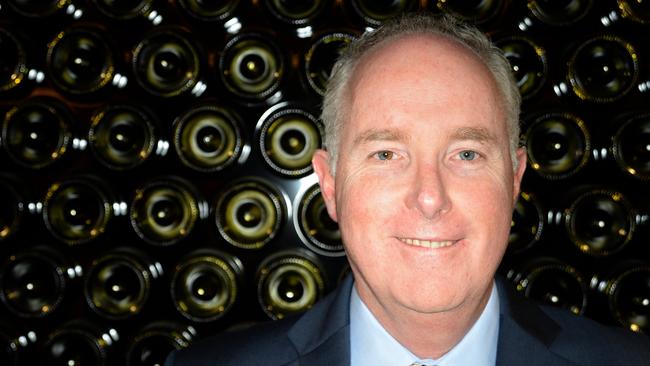Skinny Vine label dropped as TWE simplifies its wine list
Treasury Wine Estates will extinguish its Skinny Vine label that was tailored for the US market.

Treasury Wine Estates will extinguish its Skinny Vine label that was tailored for the US market after it failed to connect with American consumers eager to enjoy a glass or two of wine while watching their figure.
The maker of Penfolds, Wolf Blass and Rosemount has decided to dump the label after only two years in the market.
Skinny Vine was part of the skinny alcohol fad a few years ago and led by reality TV stars and celebrity nutritionists.
Its demise is part of a wider cull of Treasury Wine’s portfolio being pushed through by chief executive Michael Clarke.
It all seemed like a good idea at the time, appealing to image-obsessed Americans who were drinking similar products such as the Skinnygirl ready-to-drink range of cocktails created in 2009 by TV reality show queen Bethenny Frankel and later sold to spirits company Beam Global for an estimated $US40 million.
Skinny Vine, which sourced grapes from Treasury Wine’s northern Californian vineyards to produce a wine that contained up to a third fewer calories than standard wines, was initially successful, selling more than 100,000 cases in its first few months in 2013.
The label had the endorsement of Los Angeles nutritionist and author Christine Avanti, who has gained some fame with her books Skinny chicks eat real food and skinny chicks don’t eat salads.
Others rushed into the market, including private equity owned Accolade Wines, which launched The Light Grape in the US in collaboration with Weight Watchers.
But it appears the lack of longer-term marketing support and a misfiring brand name that saw it lost in a sea of drinks that also had the “skinny” name has sunk the Skinny Vine label.
It is not the first time Treasury Wine has taken a run at the low-calorie market. Its US vineyard Beringer launched and then dumped a brand called White Lie.
“In relation to Skinny Vine, this was a low-calorie product that was trialled in the US. Like all trials we took (lessons) from it, principally in this case the fact that lighter-in-alcohol wines perform better when linked to an established brand,” a spokesman for Treasury Wine said.
“So while we have discontinued Skinny Vine, we will continue to offer consumers the choice of lighter-in-alcohol wines in the US and across a range of other markets.”
Treasury Wine will still be a major player in the local market for “diet wine” through its popular Lindeman’s Early Harvest range, which that was launched in 2007 and now has a 40 per cent slice of the Australian low-calorie wine market.
Culling the Skinny Vine brand is part of Mr Clarke’s strategy to cut the long tail of wines Treasury Wine inherited when it demerged from brewer Foster’s in 2011. In March, TWE announced it would sell T’Gallant, Bailey’s and Ryecroft wineries in Australia and the Asti winery in California.




To join the conversation, please log in. Don't have an account? Register
Join the conversation, you are commenting as Logout